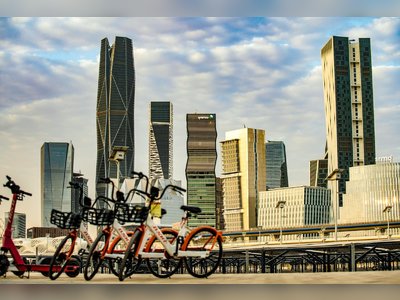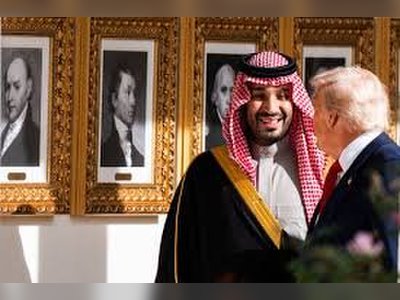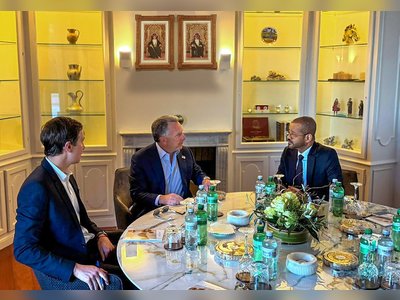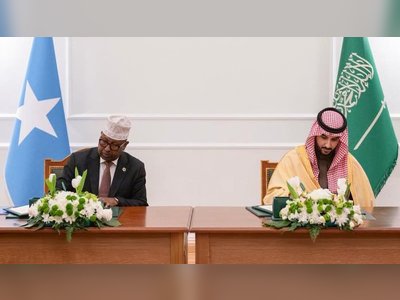
PKK central to Turkish opposition to Sweden, Finland joining NATO
While NATO leaders have attempted to convince Turkish President Recep Tayyip Erdogan to change his country’s stance on the acceptance of Sweden and Finland into the military alliance, Erdogan has instead chosen to double down, and insisted earlier this week that the two Nordic countries should “not bother” to try and remove his objections.
The problem, as Erdogan puts it, is centred around Sweden and Finland’s ties to groups considered “terrorists” by Turkey.
Although restrictions on arms exports also form part of Turkey’s misgivings over the 30-state alliance’s enlargement, it is the presence of people linked to the Kurdistan Workers’ Party, or PKK, that forms the backbone of Turkish concerns.
Turkey, a NATO member since 1952, can veto new admissions.
The PKK has waged an armed campaign since 1984 over greater autonomy for Turkey’s Kurds – a conflict that has led to tens of thousands of deaths.
Although the European Union, including Sweden and Finland, lists the PKK as a terrorist organisation, attitudes to its Syrian branch – the People’s Protection Units, or YPG – are more fluid.
The YPG was crucial in combating ISIL (ISIS) in Syria and its leaders have been hosted in European capitals. Sympathy with the YPG has been strong enough in the West for Turkey to be sanctioned for its military operations against the YPG in Syria, which critics labelled as a “war against the Kurds”.
Turkey’s state-run media recently highlighted meetings last year between the Swedish foreign and defence ministers and Syrian Kurdish leaders who Ankara says have PKK links.
“The PKK has been a security threat against Turkey since its foundation,” said Cigdem Ustun, secretary general at the Istanbul-based Centre for Economics and Foreign Policy Studies.
“Thousands of people – both civilian and military – lost their lives in the fight against the PKK. So the PKK, and any associated element, would be considered a crucial threat and Turkey expects its allies to understand the security concerns.
“Of course, Western nations’ reluctance to see the PKK and YPG in the same basket is a problem for Turkey.”
Ustun said Turkey expected its allies to “see the close link between [the PKK and YPG] through the similarities in their organisation, structure and financial resources.”
In addition to PKK sympathisers, Ankara says Sweden and Finland, like other EU countries, host supporters of a religious sect that is widely believed to have been behind a 2016 coup attempt in Turkey.
Led by US-based Fethullah Gulen, the movement – labelled the “Fethullah Terrorist Organisation”, or FETO, by Ankara – infiltrated the Turkish state over decades and backed then-Prime Minister Erdogan’s government until the early 2010s. Following the failed coup, many members fled abroad, although Gulen himself denies any involvement in the coup attempt.
Security threats
Ozgur Unluhisarcikli, director of the German Marshall Fund in Ankara, said the PKK “constitutes an existential threat to Turkey’s unity and therefore it is seen as the main security challenge”.
Following the attempted coup, he added, there is “still the suspicion in Turkey that the [Gulenist] network is still alive within the system” and so remains “an important security threat” for Turkey.
The refusal of Western states to tackle “terrorists” within their borders – the Turkish state broadcaster on Monday reported that Sweden and Finland have refused to extradite 33 people wanted by Turkey – is viewed as behaviour incompatible with friendly ties.
“In Turkey’s case, there are people who can be directly linked to terrorist attacks who are sometimes granted asylum in Europe, which is not acceptable to Turkey,” Unluhisarcikli said.
The longevity and bloodshed of the PKK’s armed campaign against Turkey has led to it becoming the country’s ultimate nemesis. Alleged links to the group have been used to imprison and smear opposition figures, particularly Kurdish politicians but also those from the centre-left.
Military conscription means that many communities have been directly affected by the conflict, while the PKK has carried out indiscriminate atrocities, such as the bombing of Ankara’s Kizilay Square in 2016 that killed 37 people, mostly civilians.
The distinction between the PKK and the YPG is viewed as naive at best by most Turks or, more likely, as highly hypocritical.
Nihal Olcok, whose husband and 17-year-old son were killed on the Bosphorus bridge on the night of the 2016 coup attempt, said Turkey’s view of terrorism seemed to differ greatly from the West’s.
“It appears that the West only sees terrorism in religious terms,” she said. “They only care about what they call Islamic terrorism. The PKK and YPG don’t matter for them. Also, many FETO members ran off to Sweden, where they live happily despite their attack on our country.”
Olcok, an executive board member of the opposition Gelecek party, added: “Everyone in Turkey knows the PKK and the YPG are the same, that they get their orders from the same people. It is hypocrisy to say there is a difference and Western countries only do this because it suits them.”
Turkey has launched three major military operations into northern Syria that have targeted the YPG since 2016 and has recently staged numerous attacks on the PKK in northern Iraq, where the group has its main bases.
While Turkey has long complained of PKK activities in Europe, the fact that Russia does not recognise the group as a “terrorist” organisation has not affected Ankara’s warm relationship with Moscow.
Russian forces work with the YPG in Syria and at least one Syrian Kurdish politician, whose contacts with Stockholm were highlighted by Turkey, met Russian foreign minister Sergey Lavrov in Moscow late last year.











